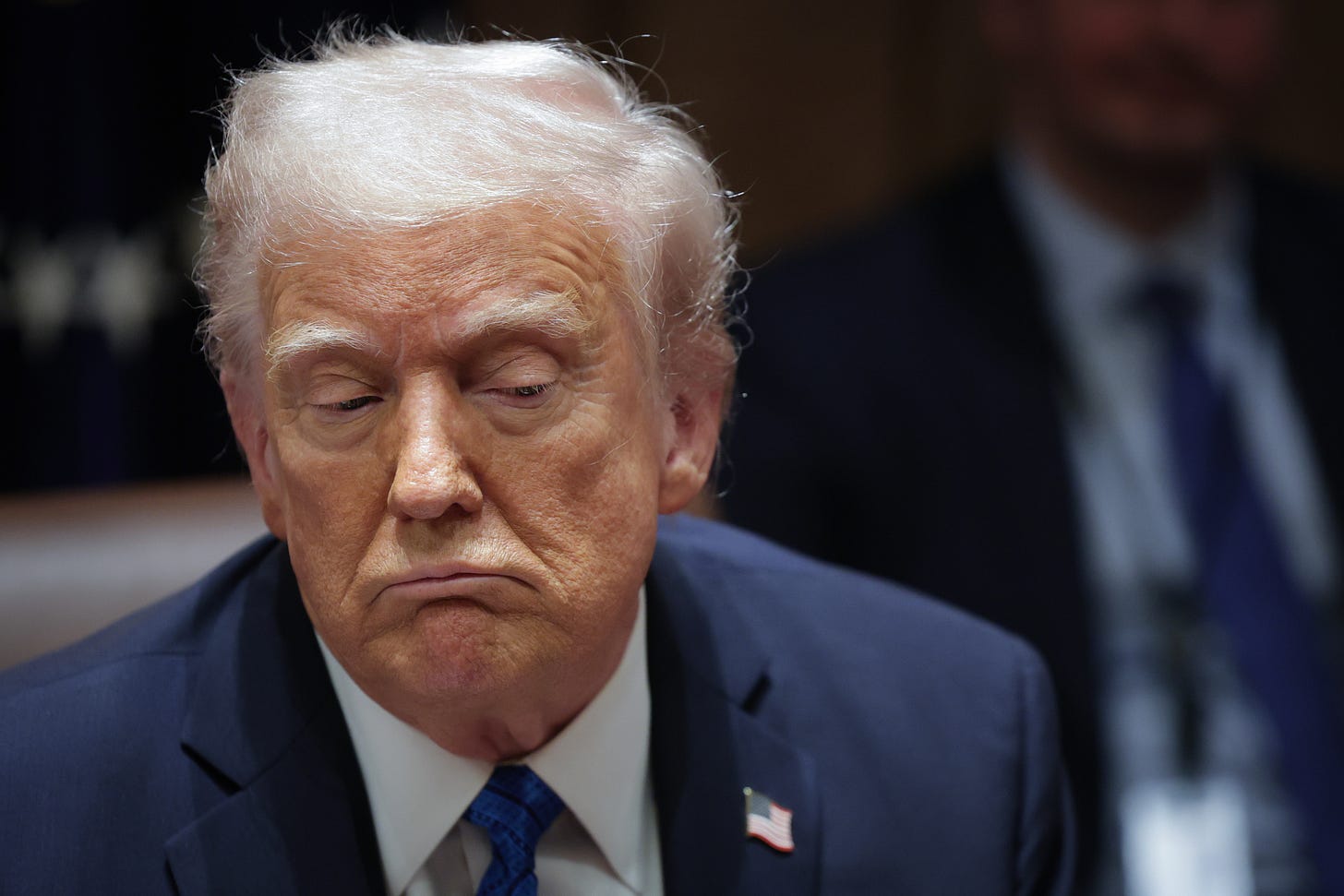Scapegoats Beware
If Trump’s tariffs tank the economy (as economist increasingly think they will), the president will be looking for new people to blame

The first ten weeks of the second Trump administration have been pretty dystopian.
When I said something along these lines over the weekend on Twitter/X, the president’s defenders demanded to know what I was talking about. So here’s a small sampling: The president has been disregarding the separation of powers and asserting sweeping executive authority on multiple fronts. His billionaire minion Elon Musk is indiscriminately burning down the administrative state by firing people by the tens of thousands. Plain-clothed government agents have been detaining permanent residents and visa-holders for acts of political wrongthink—and shipping a couple hundred alleged Venezuelan gang members, without due process, to a hellhole foreign prison in defiance of judicial rulings.
And that just scratches the surface. (I didn’t even mention the threat to take Greenland from Denmark or the president’s musings this past weekend about running for a third term in defiance of the Constitution.)
But this week looks to be dominated by Donald Trump’s plan to impose big, beautiful “reciprocal” tariffs on every country in the world, along with additional tariffs on foreign cars and auto parts. Those will supposedly go into effect on Wednesday, which the president has dubbed “Liberation Day.”
That’s when the dystopia of the present will take a port side turn into truly uncharted waters.
To Wreck an Economy
Trump inherited an economy in good shape. The Biden administration deserved some blame for the inflation that surged, briefly, from late 2021 until early 2023. But thanks to the Federal Reserve sharply raising interest rates and a steady hand at the White House, we achieved what economists call a “soft landing”: a falling rate of inflation without a decline in growth or uptick in the unemployment rate. We got inflation under control without a recession, in other words.
Yet Trump ran for president in 2024 describing the Biden economy in apocalyptic terms. Doing so gave him a couple of options when it came to formulating his own economic policy. He could do nothing to rock the boat and begin to take credit for the continuation of good times. (This is pretty much what Trump did during his first administration, with tax cuts and spending increases providing additional fuel to the steadily growing economy the president inherited from the Obama administration.) Or he could go the opposite way and use talk of a Biden economic disaster to give himself permission to make big policy changes.
Though the business community appears to have dismissed the latter possibility until quite recently, that is apparently what we’re getting. The tariffs weren’t just empty talk on the campaign trail. They weren’t just a bluff or bargaining chip Trump would use to exact concessions from other world leaders. On the contrary, the president appears to believe sincerely in the wisdom of protectionist policies and aims to reset the baseline for international trade accordingly.
I will admit that, following the analysis of just about every economist on the planet, I think this sounds crazy. If buying products from the United States becomes prohibitively expensive, foreign consumers will shop elsewhere. If American consumers are faced with more expensive imports, they may well look to buy more domestic products. But many of those will cost more, too, since in our globalized world, supply chains constantly cross borders.
Trump isn’t merely resetting the tariff baseline. He’s attempting to return to a bygone world in which protectionism and mercantilism were the norm and free trade the outlier. The result could be that everyone in the world conforms to the whims of the reactionary American president. But the far more likely outcome is that the rest of the world, led by China, remains wedded to free trade while the U.S. gets left behind.
The Coming Blame Game
But this isn’t a post about the stupidity of Trump’s destructively anachronistic views of political economy. I’m more interested in trying to think through the dangerous implications of the economic downturn that likely awaits us over the coming months.
Keep reading with a 7-day free trial
Subscribe to Notes from the Middleground to keep reading this post and get 7 days of free access to the full post archives.




